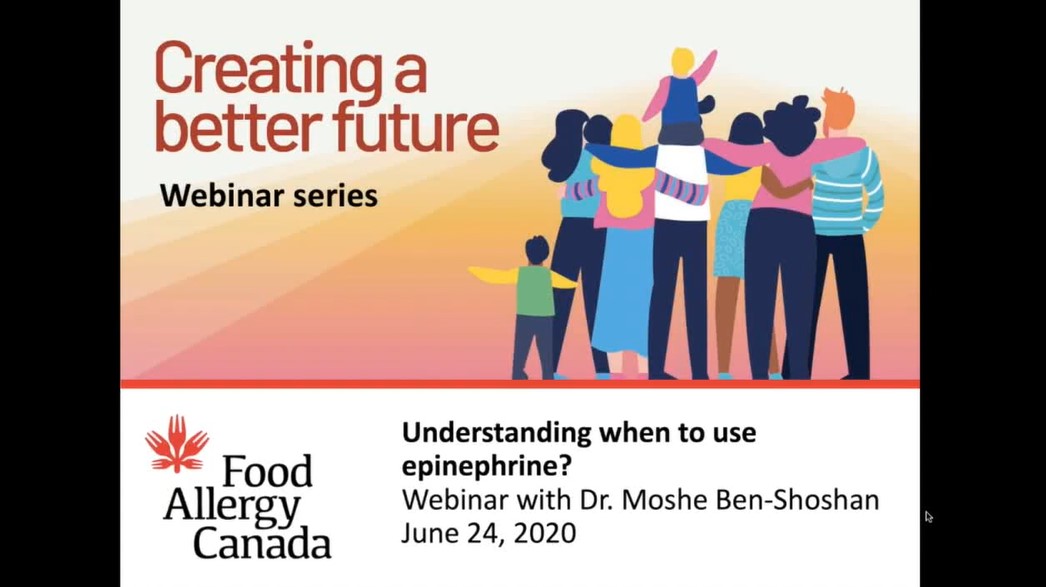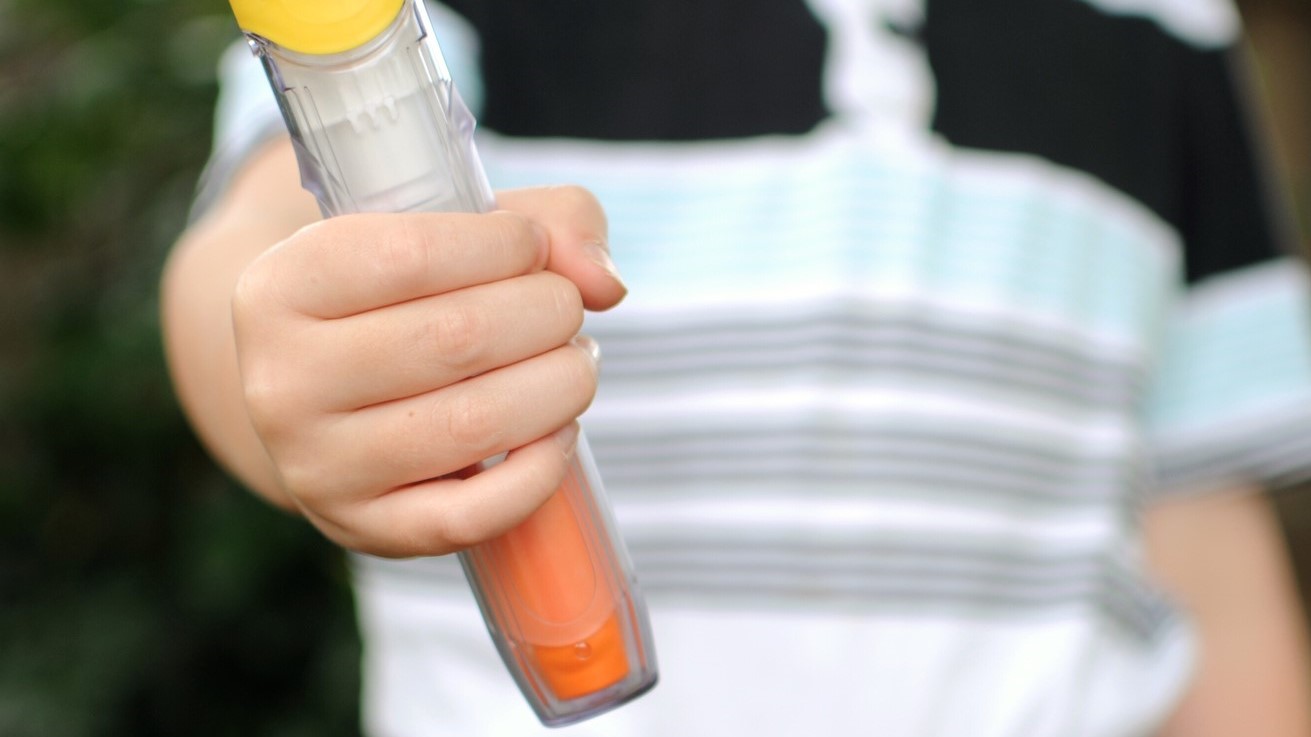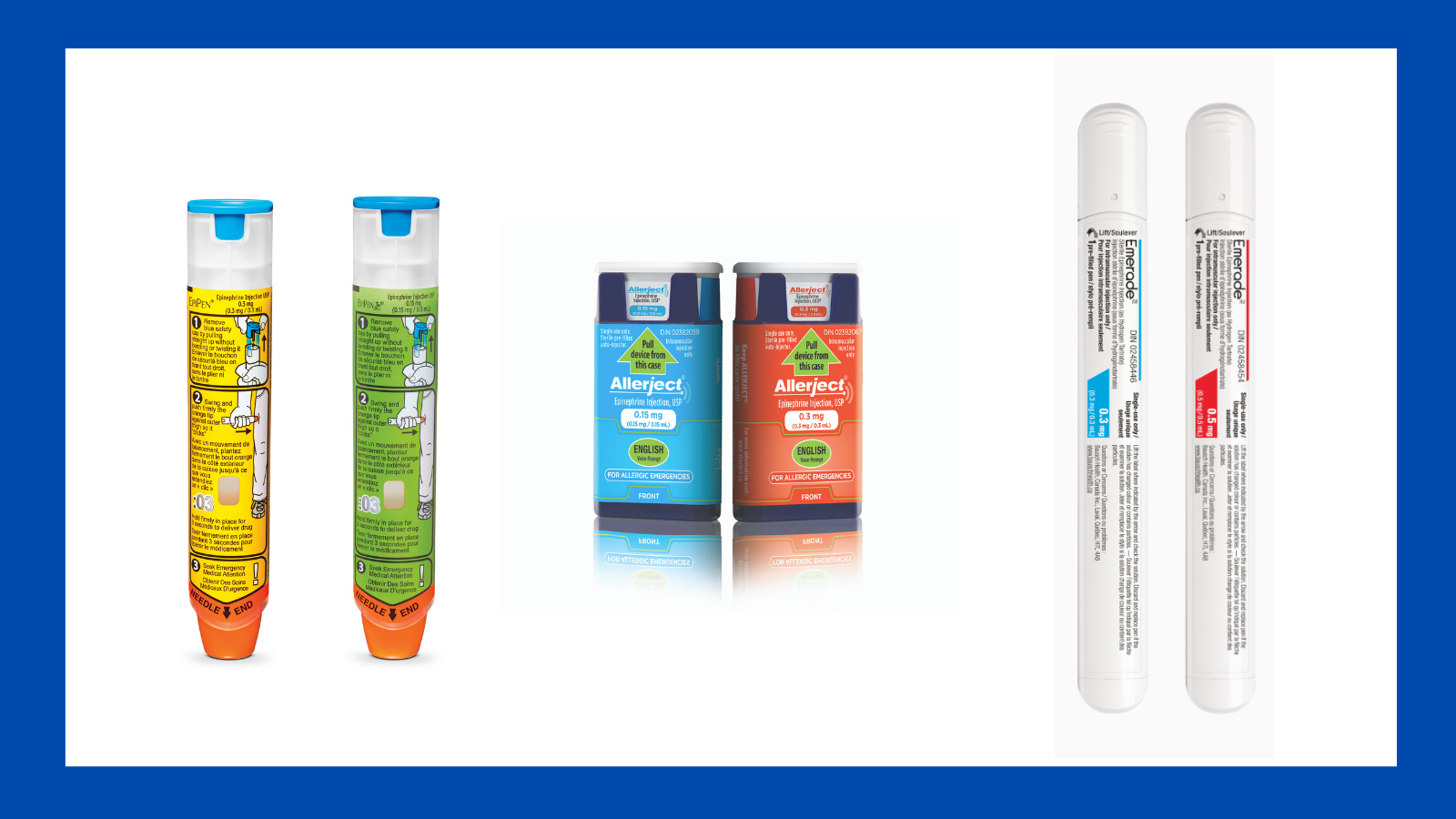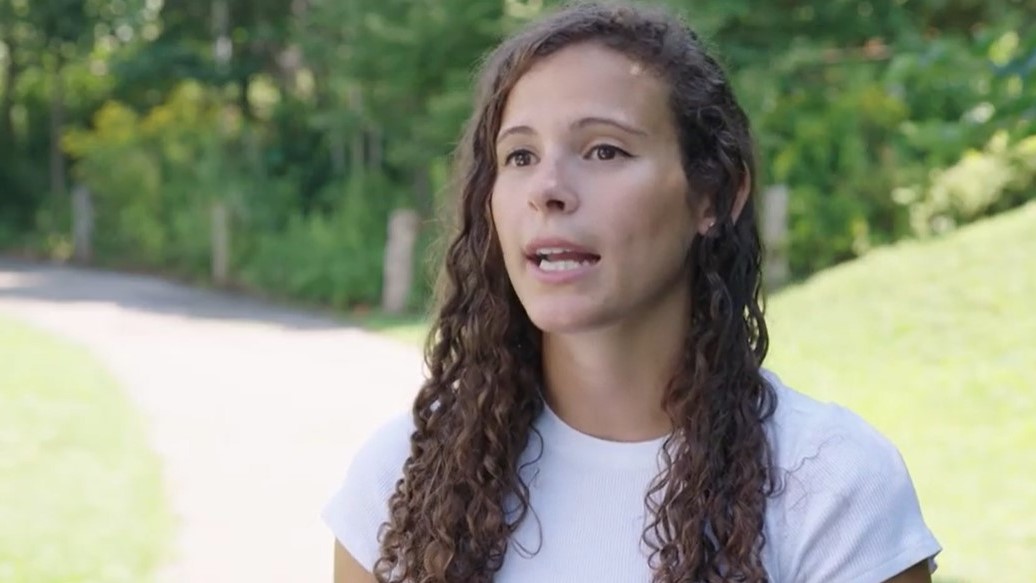Participate in three important research studies. Plus, check out our latest mythbuster on administering epinephrine, and watch an informative video on using an epinephrine auto-injector to treat an 11-month-old having anaphylaxis.
Research: Participate in a survey on managing food allergy during COVID-19
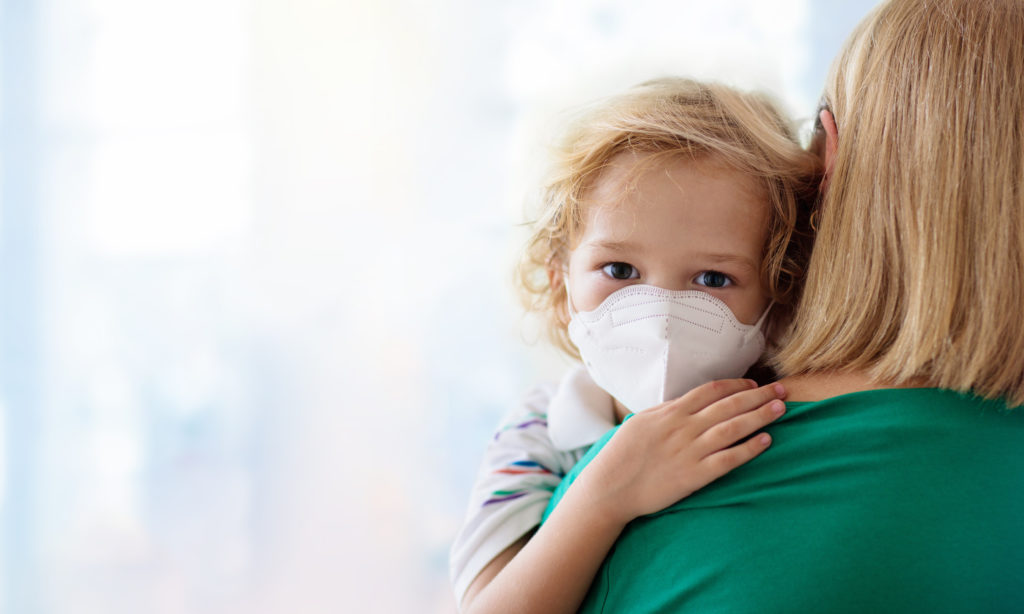
If you are a parent of a child with food allergy, or an adult with food allergy, you are invited to participate in a study of food allergy management during COVID-19.
This research will help to inform emergency protocols for future waves of COVID-19. It will also help in the development of supportive tools and policies to increase confidence in using appropriate emergency protocols during a pandemic. Your input is critical.
Please see the note below from the research team for details on the study and how to participate.
From the research team:
The research team, led by Dr. Moshe Ben-Shoshan of the division of allergy and immunology at the Montreal Children’s Hospital, part of the McGill University Health Centre, and Dr. Jennifer Protudjer, Ph.D., Department of Pediatrics and Child Health, University of Manitoba are interested in learning about your experiences with managing food allergies at home during the COVID-19 pandemic. The aim of this study is to evaluate attitudes and perceptions of anaphylaxis management among Canadian families with food allergies during the COVID-19 pandemic.
How to participate
- Complete a secure online questionnaire related to your/your child’s food allergy, and how your treatment plans in the event of a severe reaction have been affected by the COVID-19 pandemic.
- The survey should take approximately 15 minutes to complete and participation is completely anonymous.
Confidentiality
Participation in this study is entirely voluntary. You may refuse to participate or you may discontinue your participation at any time without explanation. All information obtained during this study will be kept strictly confidential. The research data will be available only to the research team and to persons taking part in managing and analyzing the research information. This study has been approved by the Research Ethics Board of the McGill University Health Centre which is also responsible for the oversight of the study.
Complete the survey
Please click this button to begin the survey in English or French.
Questions
If you would like more information about this study, please contact Greg Shand, the study coordinator, at scarican2020@gmail.com.
Research: Participate in a survey if your child with food allergy has received virtual care during COVID-19

A Canadian study led by researchers at the University of Manitoba aims to understand families’ perceptions of virtual allergy care during COVID-19. Through this study, the comfort level of parents with virtual allergy care including follow up appointments, early introduction of foods, oral food challenges and oral immunotherapy, will be assessed.
Who can participate
If you are the parent or caregiver of a child with food allergy who has received virtual allergy care during the pandemic, you are invited to participate in this study. You’ll be asked to take an online survey, which will take 15-20 minutes to complete.
Your participation in the study is important for providing meaningful insights on the experiences with virtual allergy care and will help inform how virtual care can be improved. With less than 1 allergist per 100k population in Canada, Canadians struggle to get timely access to an allergist and face long wait times, at times even having to travel out-of-province.
This means there are challenges in accessing allergy care and securing an accurate diagnosis that is even more pronounced for Indigenous, rural, and northern communities. This also means limited treatment options for some of the emerging therapies.

The federal government has recognized that the COVID-19 pandemic has necessitated a new way of accessing healthcare. In our 2021 federal budget submission, one area of focus is on a strategy to stratify virtual access to food allergy care to ensure proper diagnoses and future treatment options are accessible to all. Help us #MakeFoodAllergyCount and ask your MP to support our budget submission.
Research: Participate in a survey on the psychological health needs of living with food allergy and access to care
An international study, by researchers in Europe, Canada and the U.S., is looking at the psychological health needs, including stress, worry, anxiety and depression, related to living with food allergy, and access to care.
If you have a food allergy or are a parent of a child with food allergy, you are invited to participate in this study. You’ll be asked to take an online survey, which will take 20-30 minutes to complete.
Your participation in this study is vital to providing the researchers with insights on the psychological health care needs of patients with food allergy and their families, and the services being offered. It will also help patient organizations like ours advocate for greater mental health supports.
How to participate
 Adults with food allergy
Adults with food allergyTo be eligible, you must:
– Be 18 years of age or over
– Have a food allergy diagnosed by a medical doctor
To be eligible, you must:
– Be 12-17 years of age
– Have a food allergy diagnosed by a medical doctor
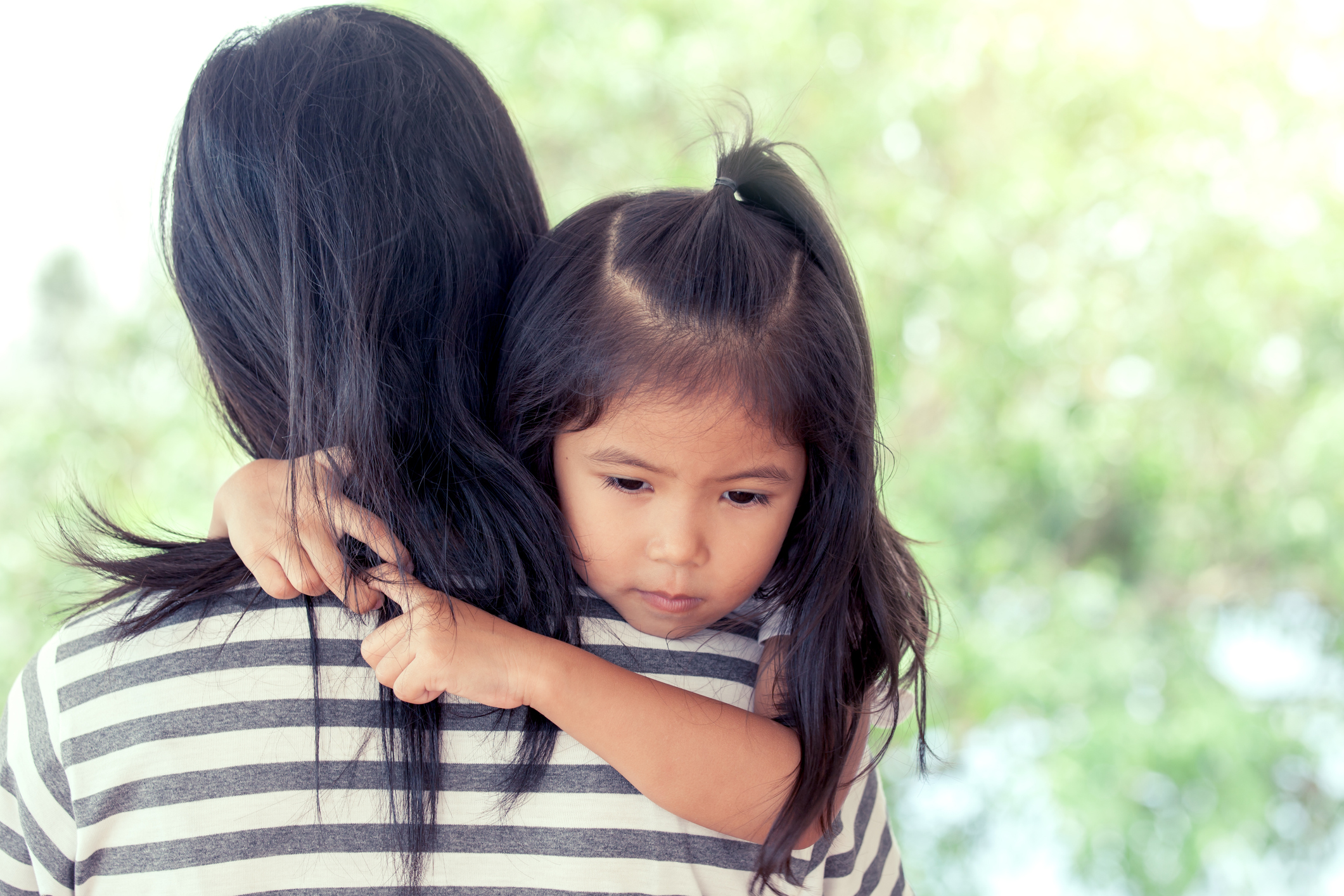 Parents/ caregivers
Parents/ caregiversTo be eligible, you must:
– Be the parent/caregiver of a child with food allergy
– Have a medical doctor diagnosis of food allergy
Mythbuster – Is it okay to wait and see before administering epinephrine when having symptoms of anaphylaxis?
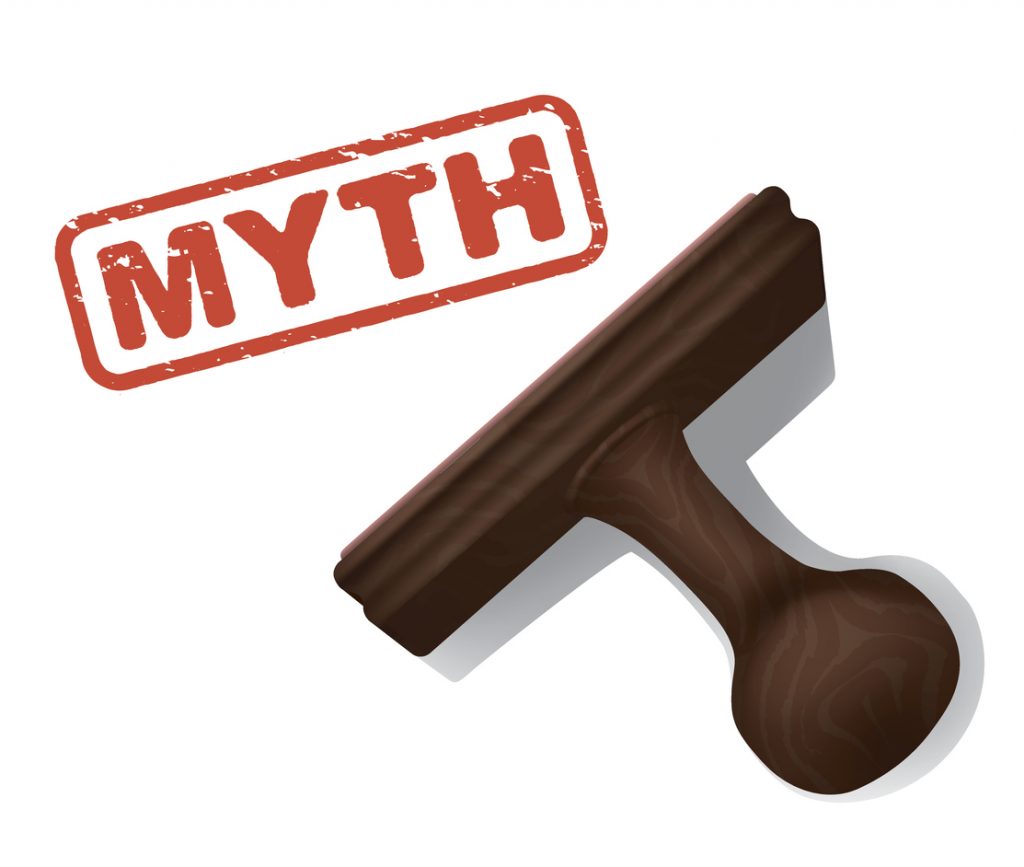
FACT: Symptoms of anaphylaxis can occur suddenly and progress quickly. The first 30 minutes are critical, so it’s important to always take a possible reaction seriously and act promptly. Give epinephrine at the start of a known or suspected anaphylactic reaction. While fatalities are rare, anaphylaxis must always be considered a medical emergency requiring immediate treatment.
Bottom line: If anaphylaxis is suspected, don’t wait and see whether symptoms improve. It’s better to be safe and use the epinephrine auto-injector.
Learn more:
Help us educate your communities and share this mythbuster with them! Find more mythbusters at foodallergycanada.ca/mythbusters.
Watch: Treating anaphylaxis in infants
Watch this informative 4-minute video by Dr. Scott Cameron, the Children’s Allergy & Asthma Education Centre, the Children’s Hospital Research Institute of Manitoba, and BC Children’s Hospital. The video shows an 11-month-old girl experiencing anaphylaxis during an oral food challenge and the use of an EpiPen Jr® to safely treat her reaction.
Note: This video was created prior to the launch of additional epinephrine auto-injectors in Canada.
Read more about the CSACI position statement on epinephrine auto-injectors and children who weigh less than 15 kg.
Check out this video which shows a 5-year-old girl having a severe allergic reaction and using her auto-injector during an oral food challenge.
Tags: advocacy, mythbuster, Research


